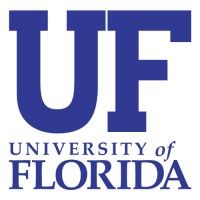UNIVERSITY OF FLORIDA

- Country
- 🇺🇸United States
- Ownership
- Private
- Established
- 1853-01-01
- Employees
- 10K
- Market Cap
- -
- Website
- http://www.ufl.edu
Applied Cognition Achieves First Continuous Human Glymphatic Monitoring, Unlocking New Alzheimer's Drug Targets
Applied Cognition published a groundbreaking study in Nature Biomedical Engineering demonstrating the first continuous, non-invasive measurement of human glymphatic function using novel electrical impedance spectroscopy technology.
Swinburne University and Tryptamine Therapeutics Launch World-First Intravenous Psilocin Trial for Binge Eating Disorder
Tryptamine Therapeutics and Swinburne University have signed an agreement to conduct the world's first clinical trial using intravenous psilocin (TRP-8803) to treat Binge Eating Disorder, with recruitment beginning this quarter.
Advancements in Gene Therapy Approaches for Neuromuscular Diseases: Promises and Challenges
Gene therapy is transforming treatment for neuromuscular diseases, with AAV-mediated approaches offering multiple strategies including adding, silencing, or editing genes depending on disease mechanisms.
Study Reveals Ozempic's Potential as Depression Treatment in Landmark Analysis
A major study of 30,000 patients demonstrates that GLP-1 receptor agonists like Ozempic and Wegovy may have significant antidepressant effects, opening new therapeutic possibilities.
BioCardia Completes Low-Dose Cohort Enrollment in Novel CardiALLO Trial for Heart Failure Treatment
BioCardia has completed enrollment and dosing of the low-dose cohort in its CardiALLO Phase I/II trial, targeting ischemic heart failure patients with elevated markers of heart stress and inflammation.
GLP-1 Drug Exenatide Shows No Benefit in Large-Scale Parkinson's Disease Trial
A rigorous 96-week Phase 3 trial involving 194 Parkinson's patients across six UK hospitals found that exenatide, a GLP-1 drug related to Ozempic, showed no benefit in treating or slowing disease progression.
